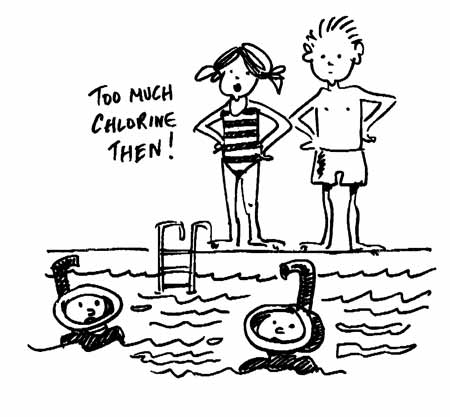|
|
| Studies link swimming pool chlorine to asthma |
|
Research reported in the spring issue of the Irish Medical Journal, reflects a link first identified in Belgian research in 2003 between the prevalence of asthma and the number of years boys had been swimming in chlorinated swimming pools. A further study by Dr. Alfred Bernard, a toxicologist at the Catholic University of Louvain in Brussels suggests that that ‘pool chlorine could be an important factor implicated in the epidemic of allergic diseases affecting the westernised world. The impact of these chemicals on the respiratory health of children and adolescents, they say, appears to be much more important - at least by a factor of five - than that associated with secondhand smoke’. Pediatrics, October 2009.
Comment from Asthma UK Dr Elaine Vickers, Research Relations Manager at Asthma UK, says: 'There are a few studies which suggest that the chemicals present in indoor swimming pools, like chlorine, may be involved in the development or worsening of asthma and other allergic conditions. This is due to the fact that the chemicals in the water may compromise protective cell barriers within the lungs, meaning people with allergic asthma are more vulnerable to allergens. 'However, asthma develops as a result of a complex mix of genetic and environmental factors, so more research is needed in this area before we can make a conclusive link between asthma and the use of chemicals in swimming pools. 'Swimming is an excellent form of exercise for children and young people with asthma as it can help improve lung capacity and the warm, humid air inside indoor pools is less likely to trigger asthma symptoms. We would therefore advise parents of children with asthma not to worry about letting their child go swimming, unless they develop asthma symptoms in the pool environment.'
Click here for more research on the possible causes of asthma 07/9 and 09/09 First Published in July 2009 Updted in September 2009
|













